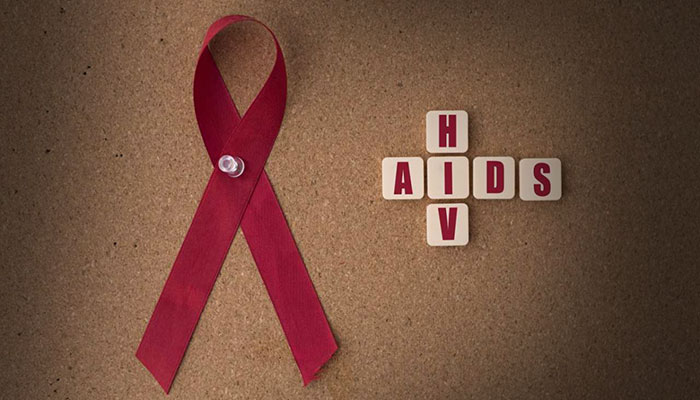PTI leader decries alarming increase in HIV cases in Sindh
Expressing concern over the alarming spread of HIV/AIDS in Sindh, the leader of the opposition in the Sindh Assembly, Haleem Adil Sheikh, on Wednesday wrote a letter to the Sindh chief secretary and health secretary and demanded functional screening facilities across the province to check the spread of the deadly disease.
Sheikh, who is also the Pakistan Tehreek-e-Insaf (PTI) central vice-president, said HIV/AIDS was spreading across the province due to lack of screening of patients and a large number of undiagnosed patients were spreading the disease as it was not possible to know the exact number of the infected people. Citing media reports on the startling situation of HIV/AIDS in Sindh, he wrote that the number of HIV/AIDS and hepatitis B & C cases in Sindh had been rising.
The PTI leader said data released by the Sindh Blood Transfusion Authority (SBTA) showed that 24,088 individuals were found infected with one or more infectious diseases and unfit for blood donation after their samples were screened at blood banks in 24 districts during the first eight months of 2021.
He said the HIV infection was continuously increasing in Larkana as more than 5,000 HIV cases, including pregnant women and children, had been reported in the district. In Larkana only, more than 40 children infected with the disease had lost their lives, he added. According to Sheikh, HIV had been detected in 1,282 people in Karachi and its cases had also been reported from Hyderabad, Sukkur, Sanghar, Thatta, Shikarpur, Jacobabad and other districts of the province.
He observed that the Sindh AIDS Control Program had failed to fully screen Ratodero, and one of the major reasons for the spread of AIDS was the lack of screening facilities and concealment of the disease by infected persons. He said the Sindh government had failed to take appropriate measures to prevent the spread of the deadly diseases though health experts across the province had time and again stressed the need for screening.
The Sindh HIV and AIDS Control Treatment and Protection Act 2013 required the formation of a commission for implementation on the law and monitoring of relevant activities, Sheikh said. “The commission was notified six years later on directives of the Sindh High Court but it was not seen working on the grounds.” He demanded that fully functional screening facilities for the diagnosis of HIV/AIDS and other transmitting diseases be made available at grassroots level across the province, particularly in the districts with high number of cases.
-
 Royal Family Shares Princess Anne's Photos From Winter Olympics 2026
Royal Family Shares Princess Anne's Photos From Winter Olympics 2026 -
 Tori Spelling Feels 'completely Exhausted' Due To THIS Reason After Divorce
Tori Spelling Feels 'completely Exhausted' Due To THIS Reason After Divorce -
 SpaceX Successfully Launches Crew-12 Long-duration Mission To ISS
SpaceX Successfully Launches Crew-12 Long-duration Mission To ISS -
 PlayStation State Of Play February Showcase: Full List Of Announcements
PlayStation State Of Play February Showcase: Full List Of Announcements -
 Ed Sheeran, Coldplay Caught Up In Jeffrey Epstein Scandal
Ed Sheeran, Coldplay Caught Up In Jeffrey Epstein Scandal -
 Paul Anthony Kelly Reveals How He Nailed Voice Of JFK Jr.
Paul Anthony Kelly Reveals How He Nailed Voice Of JFK Jr. -
 US, China Held Anti-narcotics, Intelligence Meeting: State Media Reports
US, China Held Anti-narcotics, Intelligence Meeting: State Media Reports -
 Victoria, David Beckham React To Marc Anthony Defending Them Amid Brooklyn Drama
Victoria, David Beckham React To Marc Anthony Defending Them Amid Brooklyn Drama -
 Victoria Wood's Battle With Insecurities Exposed After Her Death
Victoria Wood's Battle With Insecurities Exposed After Her Death -
 Prince Harry Lands Meghan Markle In Fresh Trouble Amid 'emotional' Distance In Marriage
Prince Harry Lands Meghan Markle In Fresh Trouble Amid 'emotional' Distance In Marriage -
 Goldman Sachs’ Top Lawyer Resigns Over Epstein Connections
Goldman Sachs’ Top Lawyer Resigns Over Epstein Connections -
 How Kim Kardashian Made Her Psoriasis ‘almost’ Disappear
How Kim Kardashian Made Her Psoriasis ‘almost’ Disappear -
 Gemini AI: How Hackers Attempt To Extract And Replicate Model Capabilities With Prompts?
Gemini AI: How Hackers Attempt To Extract And Replicate Model Capabilities With Prompts? -
 Palace Reacts To Shocking Reports Of King Charles Funding Andrew’s £12m Settlement
Palace Reacts To Shocking Reports Of King Charles Funding Andrew’s £12m Settlement -
 Megan Fox 'horrified' After Ex-Machine Gun Kelly's 'risky Behavior' Comes To Light
Megan Fox 'horrified' After Ex-Machine Gun Kelly's 'risky Behavior' Comes To Light -
 Prince William's True Feelings For Sarah Ferguson Exposed Amid Epstein Scandal
Prince William's True Feelings For Sarah Ferguson Exposed Amid Epstein Scandal




